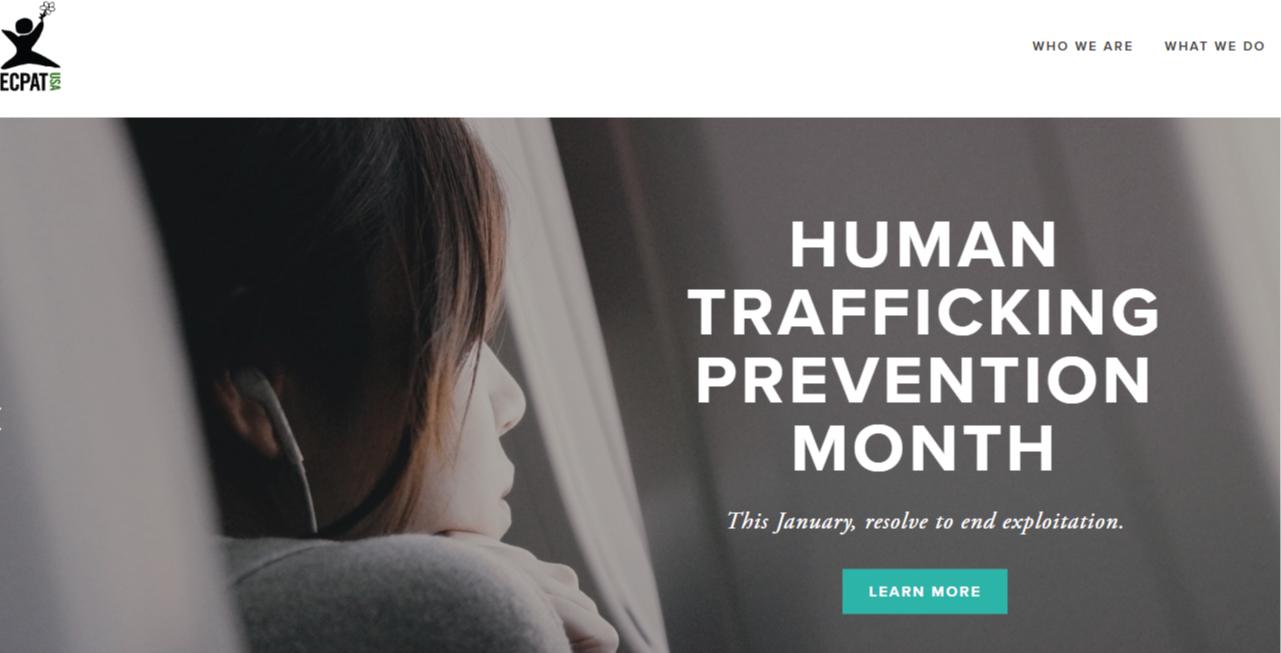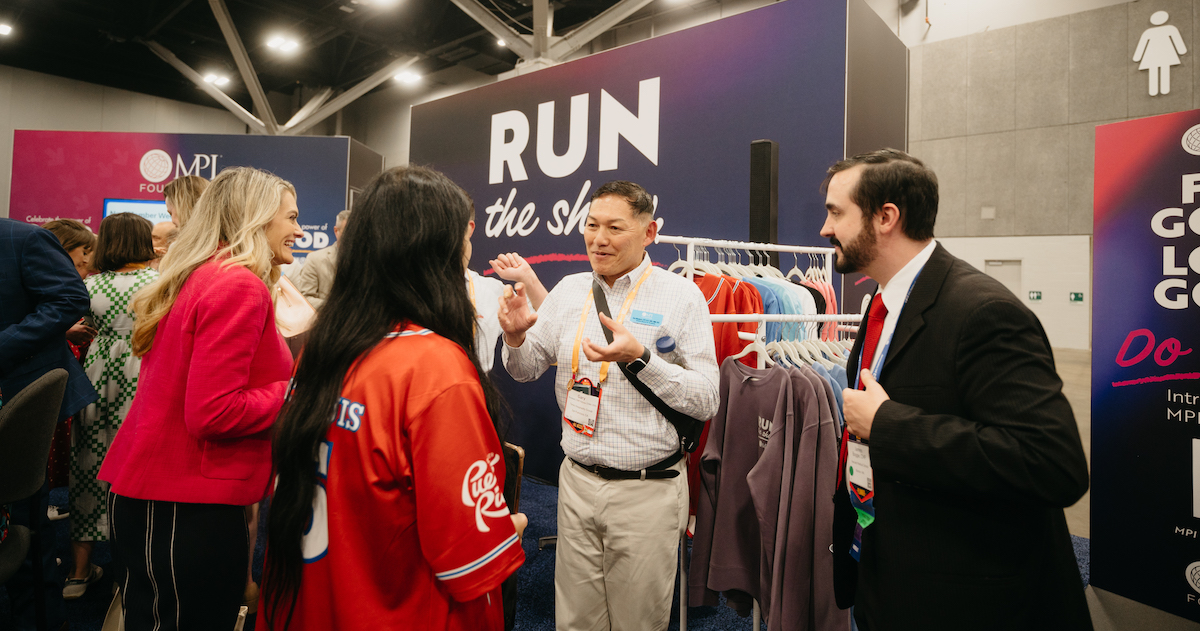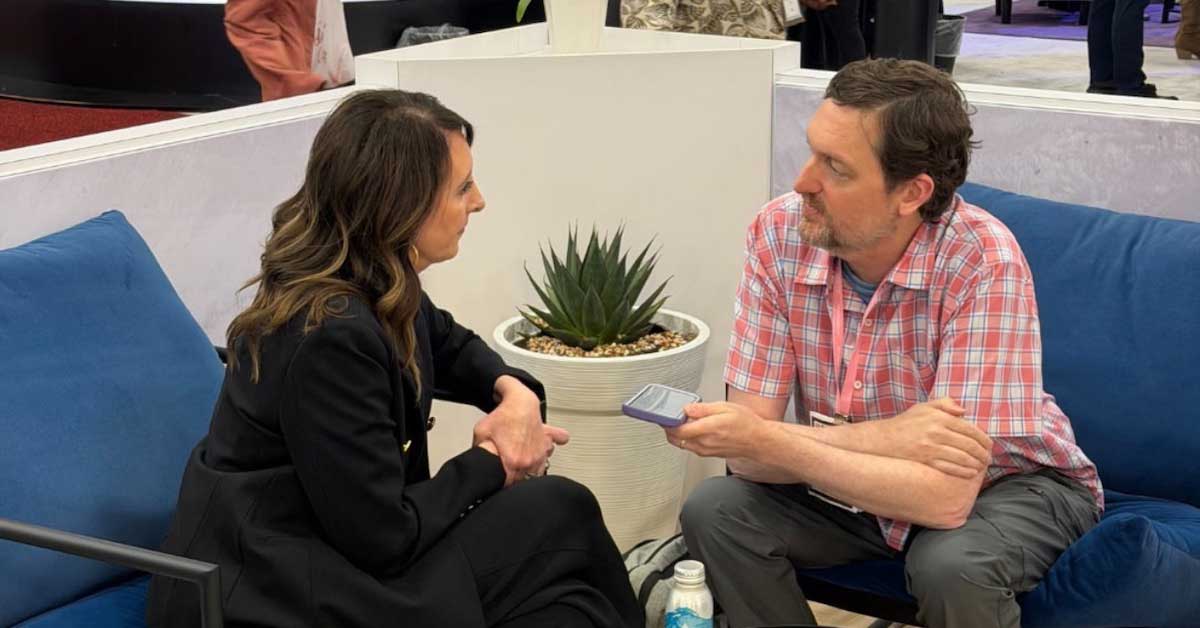The leading anti-child trafficking organization in the United States has announced a new training program aimed at educating corporate travel buyers, travel managers and the meeting and event industry on the worldwide scourge that is human trafficking.
ECPAT-USA is launching a training program, Preventing & Responding to Human Trafficking and the Commercial Sexual Exploitation of Children, as part of a renewed commitment to the mission of protecting every child’s right to grow up free from the fear of exploitation, Michelle Guelbart, director of Private Sector Engagement for ECPAT-USA, said Wednesday.
“For decades, the travel industry has been used by traffickers to their own advantage,” Guelbart said. “This training means it will be harder for traffickers to go unnoticed with more sectors of the travel industry involved in identifying and responding to the trafficking of children.
“Through our partnerships with major hotels and airlines, and now travel industry professionals, we are able to move beyond the front lines and take concrete steps toward ending child sex trafficking.”
The 25-minute e-learning module covers topics such as the definition and impact of human trafficking, signs of sex trafficking and labor trafficking, why traffickers use the travel industry and how to take action with clients, suppliers and your community. Completion of the training--which is available in English, Spanish, Portuguese and French--results in CMP credits.
The announcement comes during National Slavery and Human Trafficking Prevention Month and just days ahead of National Human Trafficking Awareness Day 2019, on Jan. 11.
The United Nations observes July 30 as World Day against Trafficking in Persons.
Guelbart said the training, which was developed with input from of a committee of travel professionals, addresses the issue of human trafficking and discusses the intersections between human trafficking and the travel industry.
The Meeting Professional, the flagship publication for Meeting Professionals International, has reported extensively on human trafficking, with reports throughout every issue in 2018.
It is estimated human trafficking is a $100 billion a year industry, with 1.2. million children trafficked each year.
Who Is ECPAT-USA
ECPAT-USA is the leading anti-child trafficking organization in the United States seeking to end the commercial, sexual exploitation of children through awareness, advocacy, policy and legislation. ECPAT-USA is a member of ECPAT International, a network of organizations in more than 90 countries with one common mission: to eliminate the sexual exploitation of children around the world.

Guelbart said traffickers have been known to use hotels, airlines and other travel infrastructure to exploit or transport their victims. As a result, travel industry leaders are increasingly recognizing the unique role they play in preventing and disrupting this crime. With training, associates are able to safely and swiftly respond to suspicious activity.
“One of ECPAT-USA’s main focuses and essential tools for ending child sex trafficking is engagement with the private sector, including ensuring as many associates in the travel industry are educated about this urgent issue,” Guelbart said.
Another tool is The Code of Conduct for the Protection of Children from Sexual Exploitation in Travel and Tourism, which is the only voluntary set of business principles that companies and organizations in the travel, business travel and tourism industries can implement to prevent and eradicate the trafficking and exploitation of children.
A number of meeting and event industry organization have signed the code, including the MPI Washington State Chapter. David Peckinpaugh, president of Maritz Global Travel and chair of the PCMA Foundation, said Tuesday that the organization has signed the code. Maritz Global Travel was one of the first meeting industry organizations to sign.
Peckinpaugh helped lead a session, “Finding Solutions to Social Justice Issues From Homelessness to Human Trafficking,” on Tuesday at the Convening Leaders conference at the David L. Lawrence Convention Center in Pittsburgh. During the session, more than 25 percent of the audience members indicated they had witnessed behavior consistent with human trafficking during their travels.
The ECPAT-USA e-learning can be found at https://www.ecpatusa.org/travel-elearning. Additional tools for meeting and travel industry professionals can be found at https://www.ecpatusa.org/resources-for-travel-professionals.
Coverage in The Meeting Professional
In 2018, The Meeting Professional began publishing material—created by MPI members, industry vets and an award-winning writing team—each examining the subject of human trafficking. This endeavor included personal tales from meeting professionals and recommendations to help the people impacted by human trafficking and to fight the criminals—and the stories reveal the diverse ways in which you and your peers have encountered trafficking.
JANUARY
“Stepping Up”
Sister Kathleen Bryant, an important impetus for MPI’s human trafficking-awareness education, explains there’s growing momentum to join the fight within the hospitality industry.
“In the early days when we tried to get them to sign on there was this reluctance: ‘These ugly things don’t happen here. We don’t want to associate the name of our hotel with human trafficking,’” she says. “The shift I’ve seen is businesses are now motivated by the need to combat those practices [because] it can affect their reputation and revenue.”
FEBRUARY
David Peckinpaugh (MPI Heartland Chapter) of Maritz Global Events is driven to act when he learns about trafficking that is too close to home.
MARCH
“Making Allies, Not Adversaries”
A grassroots effort to combat trafficking started seven years ago in Saratoga Springs, N.Y., with a group called Love 146 that has since reached out to more than 500 hotels and motels throughout the U.S.
“In our experience people in the hospitality industry have generally been really passionate and really helpful,” says Matthew Miller, director of development and mobilization for Love 146.
Email info@love146.org to request free educational resources.
APRIL
Pastor Jeff Keith and his wife travelled to India to donate a freshwater well, but learned about a local red light district and soon joined the fight against human trafficking. In 2012, he founded Bend, Ore-based Guardian Group, a nonprofit that fights sex trafficking.
“We identified pretty quickly the hotspot for this is the hotel industry,” he says. “Hotels are not asking for it. They’re trying to run a business.”
MAY
“The Moment I Most Regret”
Meeting professional Matt Judge believes he let an opportunity to disrupt a possible trafficking situation slip by, and encourages the rest of us to learn from this mistake.
“When you see something, whether on the interstate or at the conference hotel, and that voice in your head sounds the alarm, do something. Fast,” he says. “You may only have a few seconds.”
JUNE
“‘It is Happening Around the Corner’”
Toronto-based Meeting Professionals Against Human Trafficking, founded by Sandy Biback, owner of Imagination+Meeting Planners Inc., is made up of about 30 industry professionals—most of whom are meeting planners. The all-volunteer group works to raise awareness among planners, hoteliers, restaurant owners and others involved in the field. One of the group’s meetings this year had more than 90 attendees—more than twice the predicted number.
JULY
“Guardian Angels”
Dawn Rasmussen (MPI Oregon Chapter), a resume writer and career management coach, cited the training she received from MPI, an ECPAT-USA partner, as the vehicle that gave her the confidence to intervene in a recent situation with a homeless youth that could have turned into a trafficking scenario.
Visit ECPAT-USA to learn more about how your company can train associates to help end child sex trafficking and empower people to become leaders and advocates in their community.
AUGUST
“Digital Transactions Tell the Story”
When human traffickers check into a hotel, the last thing they want is for the staff to notice them. But thanks to efforts by the banking and credit card industries, it’s getting harder for them to keep a low profile.
“When you put it all together, it points strongly to a trafficker,” says Peter Warrack, chief compliance officer at Bitfinex.
SEPTEMBER
Hotels and other third parties could be implicated in crimes if they should have known about human trafficking on their premises or did know and ignored it, under the Trafficking Victims Protection Act of 2000, according to William M. Sullivan Jr., a partner at Pillsbury Winthrop Shaw Pittman LLP.
OCTOBER
As awareness of human trafficking grows, meeting professionals must trust their instincts.
“As we, within the hospitality industry, continue to be better educated on the topic of human trafficking, there will be more stories like mine,” says Pat Schaumann, CMP, CSEP, DMCP, HMCC (MPI At Large), referring to a possible trafficking incident she encountered on a flight. “I only hope that my message is loud and clear: What if you are right?”
NOVEMBER
The establishment of World Day Against Trafficking in Persons has led to more progress in an important global fight. For 2018, the United Nations focused World Day on “responding to the trafficking of children and young people.” Many groups also used the day to raise awareness of efforts they are working on. The European Union, for example, highlighted the EU Strategy towards the Eradication of Trafficking in Human Beings and to promote EU Anti-Trafficking Day (Oct. 18).







